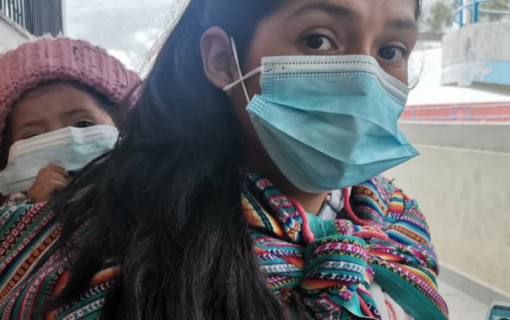Russian Federation: Pre-election Technical Assessment
EXECUTIVE SUMMARY
In September 1999, the International Foundation for Election Systems (IFES) conducted a Pre-Election Technical Assessment (PETA) of the Russian Federation to evaluate preparations for the 19 December 1999 elections to the State Duma and to make recommendations for assistance. This report examines the electoral process and current issues requiring evaluation and attention. In a series of recommendations the PETA identifies needs and proposes methods by which such needs can be addressed.
This report was developed by an international delegation of four technical experts with considerable expertise in the field of election administration, election law and the Russian political process. The team included: Christian Nadeau, Program Director for IFES/Russia and noted Canadian attorney with considerable international election experience; Paul DeGregorio, senior IFES consultant and former U.S. election official who has extensive experience in election administration and election law in Europe and Asia, including Russia; George Russell, a Technical Specialist with foreign election experience who recently served as Chair of the U.S. National Association of State Election Directors and as the chief election official for the State of Kentucky; and, Alex Yurin, Executive Director of the Russian Institute for Election Systems Development (IESD), an attorney and prominent election specialist.
Since establishing a permanent office in Moscow in 1993, IFES has played an integral role in the development of professional election administrators and in the significant improvement of election laws and procedures in the Russian Federation. Its comparative election law review and development of sample procedure manuals and other regulatory documents have raised the level of electoral development in Russia to a higher standard. Throughout the past decade, IFES has facilitated groundbreaking programs involving the exchange of election officials to expose and discuss various approaches to procedures and regulations of common issues in the political and electoral process. IFES has been recognized by the Central Election Commission of the Russian Federation (CEC) and other sub-level election commissions, government officials, members and staff of the State Duma, locally elected political leaders, political parties, NGOs, and international organizations involved the electoral process for the significant technical advice and support it has delivered in the Russian Federation during this historical decade of democracy.
In recent years, IFES has worked to develop an NGO "think tank on elections in Russia; served as a one-stop resource center for important electoral information for domestic and international entities; provided hands-on technical assistance through targeted commentary, material development, and on-site consultations; held roundtables and conferences for practitioners and policy makers on important elements of the electoral process, including the role of the media, campaign finance and election reform; disseminated important election material throughout the Russian Federation through an effective outreach program with Subject Election Commissions (election commissions of the Subjects of the Russian Federation or SECs) and other regional authorities.
Through an extensive series of meetings with Russian election officials, political party and NGO leaders, and others involved in the electoral process, the 1999 IFES PETA team was able to gain valuable insights into the needs and concerns expressed by these officials regarding the 19 December 1999 Duma election. In addition, the observation of the gubernatorial elections in the Yekaterinburg Oblast on 29 August 1999 and in the Leningradsky Oblast on 19 September 1999 allowed for analysis of the real-time application of election laws and procedures.
The Russian election system was established in the years 1993-1995. In late 1992, the development of new election administration was initiated by a group of deputies and experts within the framework of the Constitutional Commission of the Congress of the Peoples Deputies of the Russian Federation. Their work, as modified, entered into force by Presidential Decree in the political crisis in the second half of 1993. On the basis of this decree, the first election to a new Russian Parliament was conducted on 12 December 1993. At that same election, Russian voters ratified a new Constitution that established basic voting rights for citizens of the Federation.
Electoral reform efforts in Russia have centered on a stated commitment to guaranteeing the rights of its citizens in the electoral process. Nevertheless, protecting the rights of over 100 million voters is a daunting task. The framework law on the "Basic Guarantees of Election Rights and the Rights to Participate in a Referendum" entered into force in 1994. This law was annulled with the passage of a new Federal Law "On Basic Guarantees of Electoral Rights and the Right of Citizens of the Russian Federation to Participate in a Referendum" in September 1997. The Basic Guarantees law outlined a hierarchical structure of election commissions, formally recognized electoral associations and blocs as part of the political landscape, guaranteed the right of voters and candidates participating in the process, and developed fundamental principles for voting, counting and tabulation processes, among other innovations.
The Law on the Election of Deputies for the State Duma of the Federal Assembly and the Law on the Election of the Russian President of the Russian Federation was adopted in 1995. The Law for the Election of the President has not yet been brought into compliance with the Basic Guarantees Law.








